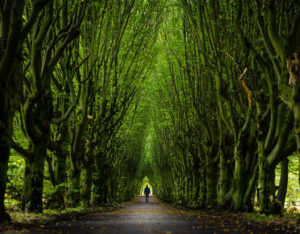Everyone experiences feelings of sadness, loneliness and fear. This is a natural response to life’s difficult situations such as losing a loved one, going through a divorce or losing a job. Many of us experience this, but we deal with it, recover from it and get on with the rest of our lives.
Clinical depression, on the other hand, is a psychiatric condition characterized by a variety of psychological, physiological and social symptoms that can be debilitating and impact every aspect of the person’s life.
Two Major Types of Depression
Although many people who suffer from depression also experience feelings of anxiety and vice versa, according to the Anxiety and Depression Association of America (ADAA) depression and anxiety disorders are very different. Each disorder is characterized by its own set of emotional and behavioral symptoms and caused by different things.
1. Major Depressive Disorder
Major Depressive Disorder (MDD) is the most commonly diagnosed form of depression in the U.S., with an estimated 17.3 million adults over the age of 18 experiencing at least one major depressive episode in 2017.
A diagnosis of MDD is predominantly characterized by overwhelming feelings of sadness, hopelessness and helplessness, lack of energy, disturbed sleep, as well as having difficulty interacting with others that lasts for two weeks or longer and represent a significant change from previous functioning.
2. Persistent Depressive Disorder
Similar to MDD, persistent depressive disorder (PDD) is also associated with feelings of being low, dark or sad with the major difference being that these feelings should be present most days for at least two years.
Usually, depression is treated with antidepressants such as selective serotonin reuptake inhibitors (SSRIs), tricyclic antidepressants and monoamine oxidase inhibitors (MAOIs). These come with a wide variety of side effects that range in severity. For many people, these side effects are relatively benign things such as nausea and dry mouth. For others it can mean increased feelings of anxiety and even an increased risk of suicide.
CBD for Depression
Cannabidiol (CBD) has recently started gaining popularity as an alternative treatment for depression due to its favorable side-effect profile. And although CBD research to date has predominantly focussed on animal studies, scientists are optimistic about the data from the preclinical studies available thus far—that this cannabinoid could induce antidepressant-like effects.
How CBD May Have the Potential to Treat Depression
In the “serotonin hypothesis” of clinical depression, researchers propose that that diminished activity of serotonin pathways plays a causal role in the development of depression. That’s why antidepressants target these receptors in an attempt to increase serotonin levels in the brain.
In a 2011 study, researchers investigated the role of the endocannabinoid system (ECS) in alleviating the symptoms of depression. This study found that a deficiency in endocannabinoids can lead to changes in emotional and cognitive behavior and biological changes, impaired stress adaptation, reduced neurogenesis and altered serotonin negative feedback, which are all linked to preclinical depression. They also found that CBD can be a beneficial alternative treatment because of the way in which it regulates the ECS and its role restoring endocannabinoid signalling in a manner similar to conventional antidepressant treatments.
And just like SSRIs and other antidepressant medications, the main reason why CBD is showing promise as an effective treatment of depressive disorders is because of the way in which it helps to modulate, regulate and enhance the activity in the receptors to which serotonin binds.
For instance, in a 2010 animal study, the data indicated that CBD mediated by activation of the 5-HT(1A) receptors implicated in brain development and mood, showing antidepressant effects that are comparable to the well-known antidepressant, Imipramine. These results were replicated in a 2016 study showing that CBD may be beneficial for the treatment of clinical depression, and another 2016 mouse study found that serotonin and glutamate levels significantly increased after dosing with CBD.
Using CBD For Depression
As with any other type of treatment, if you are considering trying out CBD for treating your depression, it’s crucial to speak to your psychiatrist or treating physician first. Not only can CBD potentially interact with other medications, but it is important for your doctor to be aware of it so that he or she can continue monitoring its effect on your symptoms.
Something else to take into consideration is that when formulating a CBD treatment protocol for any type of depression, it is important to understand that it should be used regularly for maximum relief. Think of it like any other treatment or dietary supplement: you want to establish a kind of baseline concentration in your system in order to both prevent and treat acute flare-ups.
Acute Treatment
For many people, their depression is worsened by specific events, circumstances or environmental pressures. This can cause a flare-up of symptoms of depression for which they need a safe and effective treatment option. In situations such as this, a single 30 mg/kg dose of CBD can be a good option, as research suggests that it may have a promising therapeutic profile as a fast-acting antidepressant when treating acute depressive episodes.
Sustained Management
Similarly, for people who want to manage depression more preventatively, CBD may be an effective option, either as an alternative or adjunct treatment. Although there are no studies looking at serving sizes for depression specifically, in the laboratory, effective antidepressant effects for CBD was found at servings from 7 mg to 30 mg/kg of body weight. It is recommended to start with 5 mg to 10 mg of CBD per day, and gradually increasing it by and additional 5 mg to 10 mg until desired effects are achieved. Again, speak with your doctor before introducing CBD in any form.
Serving Size Considerations
Concentration vs. Serving Size
Different products come in different concentrations, indicating the amount of CBD measured in milligrams that’s in that product. Serving size is the amount of CBD per serving. Use a CBD serving size calculator like this one from ID Weeds or CBD Oil Users to help calculate how much you need to take for your brand of product.
Body Weight
Generally, lighter-framed people or people with a lower BMI need smaller doses of CBD than people with a higher body fat percentage or a heavier frame.




